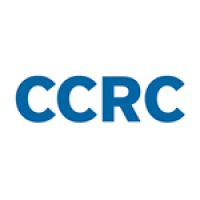By Brad C. Phillips and Jordan E. Horowitz
Community colleges are the engine of opportunity for students, especially students from disadvantaged populations. But far too often, students do not stay and complete their community college programs. When students drop out or stop out, everybody loses—the students, the college, and the community. College staff need to work differently to support the students they serve, and leadership needs to champion those engaged in student support activities.
The Caring Campus Initiative of the Institute for Evidence-Based Change (IEBC) is designed to improve student success at colleges by coaching faculty and staff to identify and commit to behaviors that increase students’ sense of connectedness and belonging. Caring Campus, which is being evaluated by CCRC, is based on research that shows that students who feel more connected to their college are more likely to succeed in their courses, persist from term to term, and complete their educational goals. Students enroll where they are welcome and stay where they’re cared about.
But what does it mean to be a caring campus in these extraordinary times, and how can colleges ensure students feel connected, even when working in a virtual environment? Also, what structural components need to be in place to ensure students are provided with support services in an efficient and productive way?
Reach Out to Students and Provide Key Information
First, colleges need to be proactive and reach out to all students. For too long, we have been passive, waiting for a student to contact staff with an issue or problem. This outreach might seem like a heavy lift, but across the country, colleges have been training teams of staff members to contact students since the coronavirus forced campuses to close. In fact, San Antonio College, an Aspen Prize top 10 finalist, reached out to 20,000 students. They also prioritized students who, according to their records, had not previously taken an online course or who came from surrounding areas with high poverty levels and might not have the resources needed to engage online.
In reaching out to students, it’s important for professional staff making calls to address three key items:
- Check on the welfare of the student and let them know the college cares about them.
- Provide updated information to the student about college operations.
- Be prepared to answer any questions and connect the student with the correct department to address their issues.
In addition to training staff to successfully make these calls, colleges should make sure department directories are current and include the names of staff who are responsible for specific tasks or populations. Staff should also be provided with a list of community and state resources to make referrals. To ensure staff privacy, if they are using a personal number, colleges should recommend that staff use *67 or Google Voice to mask their private phone numbers, and they should consider providing them with a stipend to cover additional phone or data charges.
Support Staff So They Can Support Students
For professional staff members to do their jobs well, colleges also need to provide them with support. Just as students may struggle during these socially isolating times, leaders must recognize that the staff member’s home workspace may be inadequate and they may not have access to the information, forms, supplies, and resources they need to do their jobs well. They also can’t easily confer with colleagues.
There are considerations beyond the structural, though. Because professional staff, like students, are working from home, they may have new or added childcare responsibilities. There may be more people and distractions around than they encounter when working on campus. There are added stresses, as professional staff worry about their loved ones and the community. They also do not have the collegial support they count on for respite in their day-to-day, on-campus lives.
Leadership can do a lot to support professional staff. Presidents can hold weekly video chats to disseminate information and hear staff concerns, making make sure to use a platform that lets their staff see them. Human beings need to see other human beings and not just hear a voice, so leadership should use a visual platform such as Zoom or Microsoft Teams. The chats allow professional staff to express what they are going through and what they are feeling. Leaders should listen attentively and sympathize with examples from their own lives. They should also encourage group problem-solving. If they offer to address an issue, they should be sure to follow through.
We recommend that department and division leads hold at least weekly meetings. As with all contacts, staff meetings should begin with quick check-ins on each other’s well-being. They can encourage an optimistic frame by asking staff to share some positive activity—related to work or in their personal life—that took place during the week. Department heads should also provide any college-wide or departmental messages, ask if there are any common issues team members are hearing from students for which they’d like to develop a unified response, and ask about work challenges. It is important that these meetings are also not voice-only.
We at IEBC know that colleges work hard in ordinary times to ensure student success in many ways. We believe they can continue to do so in extraordinary times as well. Colleges are focusing on instructional practices because that is at the heart of what colleges do: educate. However, it is important to address students’ non-academic issues. It’s also essential that we support our professional staff in ways that help them support students.
Brad C. Phillips is the president and chief executive officer and Jordan E. Horowitz is chief operating officer of the Institute for Evidence-Based Change.





